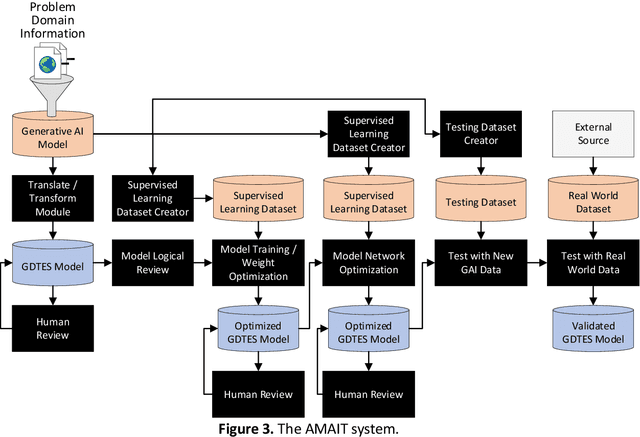Development of an Adaptive Multi-Domain Artificial Intelligence System Built using Machine Learning and Expert Systems Technologies
Paper and Code
Jun 17, 2024



Producing an artificial general intelligence (AGI) has been an elusive goal in artificial intelligence (AI) research for some time. An AGI would have the capability, like a human, to be exposed to a new problem domain, learn about it and then use reasoning processes to make decisions. While AI techniques have been used across a wide variety of problem domains, an AGI would require an AI that could reason beyond its programming and training. This paper presents a small step towards producing an AGI. It describes a mechanism for an AI to learn about and develop reasoning pathways to make decisions in an a priori unknown domain. It combines a classical AI technique, the expert system, with a its modern adaptation - the gradient descent trained expert system (GDTES) - and utilizes generative artificial intelligence (GAI) to create a network and training data set for this system. These can be created from available sources or may draw upon knowledge incorporated in a GAI's own pre-trained model. The learning process in GDTES is used to optimize the AI's decision-making. While this approach does not meet the standards that many have defined for an AGI, it provides a somewhat similar capability, albeit one which requires a learning process before use.
 Add to Chrome
Add to Chrome Add to Firefox
Add to Firefox Add to Edge
Add to Edge